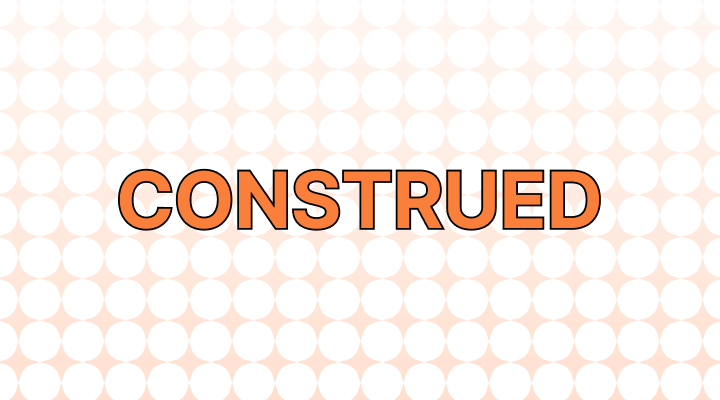"Construed" is the past tense of "construe," which means to interpret a word or action in a particular way. When someone construes something, he, she, or they are analyzing the intention or significance of the statement, action, or situation.
For instance, you may be working on a project for work when a colleague comments, "Interesting approach. I guess some people prefer that method." This casual remark can be construed as criticism because you may interpret their words as implying there is a better method out there and that your method is inferior. However, that is your interpretation, and you do not know the true intention of your colleague unless they directly communicate it to you. You are assuming their intention with your own interpretation which is influenced by your experience or even your own lack of confidence in your work.
Example sentences
- Her silence could be construed as consent.
- The ambiguous email could be construed in various ways.
- The action was mistakenly construed as an act of aggression.
- His compliment was unexpectedly construed as sarcasm.
- The absence of a response was wrongly construed as indifference.
- The gesture could be construed as a sign of friendship.
- The artist's work can be construed as a commentary on modern society.
- Her hesitation was wrongly construed as uncertainty.
- The statement was carefully worded to avoid being construed negatively.
- The tone of his voice could be construed as disapproval.
Want to sound like a native speaker?
Engram’s AI-powered grammar checker makes your English sound like a native speaker’s, suggesting natural English expressions on top of fixing grammar, spelling, punctuation, word order, and vocabulary.

Reference:
















